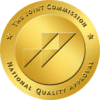Sign Up For Our Newsletter
By submitting this form, you are consenting to receive marketing emails from Safe and Sound Treatment
Licensed & Certified by the State Department of Health Care Services
Expiration: 04/30/2026
Expiration: 06/30/2026
Narcan is kept onsite at all locations
Copyright © 2024, Safe & Sound Treatment. All Rights Reserved.




